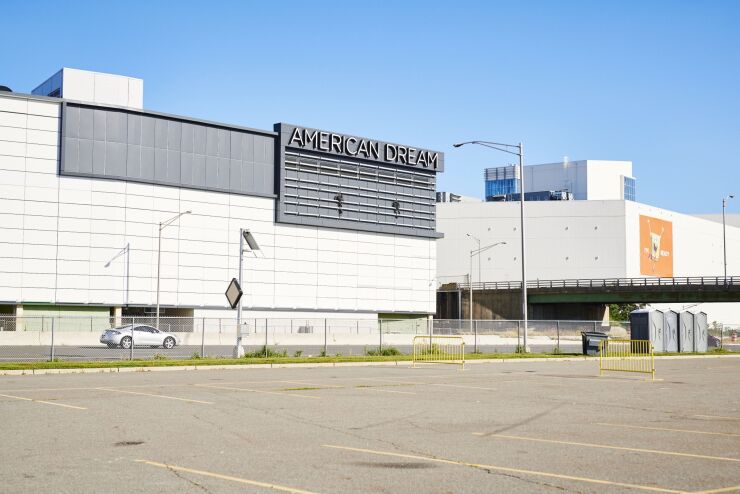Want unlimited access to top ideas and insights?
The bond-funded American Dream megamall shut its doors this week in an effort to combat the spread of COVID-19.
The venue
American Dream co-chief executives Don and Mark Ghermezian announced in a statement late Friday that while there have been no reported COVID-19 cases at the 3-million-square-foot complex in East Rutherford, New Jersey, they were closing the site “to help mitigate” spread of the virus.

They anticipate the closing entertainment and retail hub will be closed at least through the end of March while following guidance from public health agencies.
On Monday, New Jersey Gov. Phil Murphy
The long-stalled mall debuted in phases starting in October, 15 years after ground was first broken by its original developer. The project originally called Xanadu encountered a series of delays stemming from the 2008 credit crisis.
A $1.1 billion tax-exempt revenue bond
“The ill-fated American Dream project certainly didn’t need to add a global pandemic to its list of challenges,” said Lisa Washburn, managing director at Municipal Market Analytics. “The longer term impact on international travel and retail is uncertain but it is certainly possible that the virus could hasten the decline of mall shopping.”
Triple Five secured a $1.6 billion in private construction loans from JPMorgan to lay a foundation for the 2017 bond deal. The transaction featured the Wisconsin-based Public Finance Authority acting as a conduit issuer for New Jersey Sports & Exposition Authority, which operates the Meadowlands District where the megamall is located next to MetLife Stadium.
The sudden closing of American Dream occurred just before the mall was set open its Dreamworks Water Park and some of its planned 250 retail stores. The first phased opening of the development in late October included an NHL-regulation ice rink and Nickelodeon Universe being billed as the Western Hemisphere’s largest indoor theme park. An indoor ski slope also opened in December.
“I expect that congregating with large groups of strangers will hold less appeal for quite some time, particularly at an indoor amusement or water park,” Washburn said. “There is now cover for all financing participants because what is happening now was impossible to imagine just weeks ago.”
Dan Berger, senior market strategist at Refinitiv’s Municipal Market Data, said there has been little recent trading activity of American Dream debt other than a block of $14.5 million maturing in 2037 that traded on March 4. These bonds traded at a 6.5% coupon to a yield of 4.00% for a spread of 274 basis points, but Berger stressed that the municipal bond market landscape has drastically changed in the last two weeks because of the COVID-19 pandemic. An evaluation of the bonds at the close of last Friday had them at a spread of 344 BPs, according to Berger.
“In a volatile market like this you can’t go by that initial trade,” Berger said. “Establishing the value of them in this market is very challenging.”





